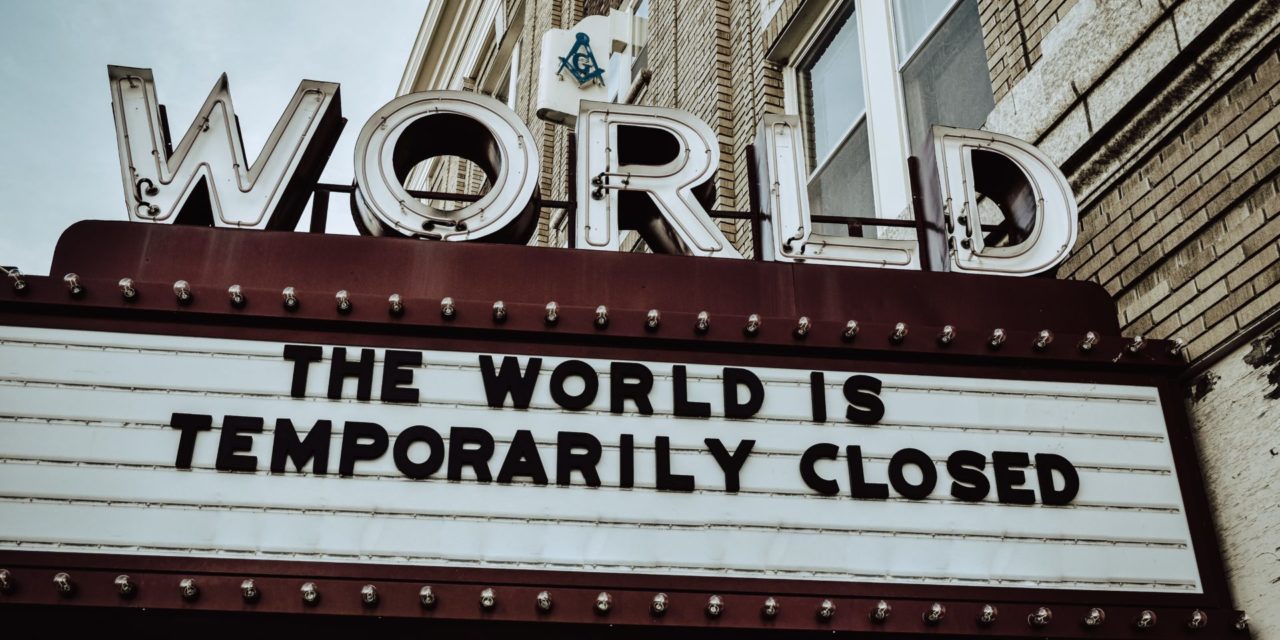What’s the main political lesson you’re drawing from the outbreak of Covid-19?
The main political lesson is that globalization was wrong, wrong, wrong. After the global financial crisis of 2008,triggered by financial globalization, which brought on recession in the global real economy, the path to be followed afterwards should have been to deglobalize production. Instead, the world embarked on a new phase of globalization, known as “connectivity,” led by China. Drawing the parallel to digital connectivity, infrastructure connectivity and transportation connectivity, especially air connectivity, was extolled as the key to successful globalization. When the virus came, air connectivity became its principal way of spreading very swiftly. And when China stopped its industries to deal with the virus, the world lurched on into economic crisis because industrial connectivity had resulted in so much many global supply chains having their point of departure in China. So the main lesson is that instead of being the route to prosperity, as its partisans claimed, globalization has been the path to disaster. Will the world absorb this lesson this time? That is the question.
Is deglobalization, as you conceptualized it, a relevant answer to the ongoing public health crisis? Why?
In the short term, owing to the very real threat of starvation if the global agricultural supply chains stop functioning and depression if the global industrial supply chains stop, the supply chains cannot simply be cut. But, even as these are allowed to function in the short term, the process of relocating agricultural and industrial production locally and regionally should begin. This is the third warning in less than 20 years we’ve had to abandon globalization. The first was the 2007-2008 food price crisis caused by massive disruptions in the global food supply chains. The second was the 2008 global financial crisis and the follow-on recession in the global real economy. As they say in American baseball, three strikes and you’re out.
I remember you were already advocating deglobalization as an answer to the 2008 financial crisis – which also marked the “end of an era”, etc. But this solution has not been put into practice. Globalization deepened even further, since then. How to be sure that this time, the current neoliberal model will not go on, just as before the coronavirus outbreak?
Even before 2008, as early as 2000, right after the Asian financial crisis, my colleagues and I at Focus on the Global South were already advocating deglobalization. My book Deglobalization: Ideas for a New World Economy was published in 2000. Interestingly, deglobalization was adopted by some people in Europe, for instance, by Arnaud Montebourg, when he was running for the presidency in 2012. Montebourg said he was inspired by my work. Unfortunately, there were few other people on the left that followed his example. But the right was the one that appropriated the idea, with Marine Le Pen arguing for a renationalization of the French economy. Different varieties of deglobalization were adopted by other right-wing forces in Europe and the idea was used to discredit both the center right and the center left that were identified with neoliberalism and globalization. The fight in the coming months will be between the now gravely discredited forces that will want to return to the status quo ante of neoliberalism and the extreme right espousing deglobalization and economic nationalism of a frightening kind. The left is not a serious player in this conflict so far. It has to arm itself with a progressive deglobalization program.
To make it very concrete, what would be – among the 10 or 11 pillars included in your deglobalization concept -the first one that should be implemented, and how?
Dismantle the global agricultural and industrial supply chains, but this process should not be left in the hands of corporations but under the leadership of civil society and progressives. This is a question of changing economic policy, and progressives will have to participate in politics and win in order to bring about a change in economic direction. The 15 point deglobalization program assumes that progressive forces are in the lead, not reactionary economic nationalists who want to use deglobalization to disenfranchise minorities and repress migrants.
Some people do say this epidemic is going to accelerate the decline of the US–and the EU– and accelerate the rise of China – and Asia. What do you think?
The US did not need the virus to move it along the path of decline. Trump was already doing a good job bringing that about, even as the neoliberals in Europe were gasping in fright as his policies threatened to drag the EU along with it. But will China be the new hegemon? Even before the crisis, China’s growth was already cut in half from the early 2000’s and the profitability of its industries was savaged by massive industrial overcapacity. Now with the virus, China’s is sliding into recession and, since it is so dependent on global trade, with the massive shrinking of trade, that recession is likely to turn into depression. This will mean a lot of social discontent in China, where people are already upset at the way the Communist Party bungled its response to the virus. I think the CCP is headed for a debilitating crisis of legitimacy, especially since the only tool it has for dealing with dissent is repression. So both the US and China are in a downward spiral.
How should we ensure that this deglobalization concept is not grabbed any far right political parties, once the pandemic is over?
The far right already has. The left is far behind because, although the independent left originated the critique of globalization, the established social democratic left is deeply implicated in neoliberal globalization. Blair, Clinton, Holland, Schroeder and their cohorts really dug a deep grave for progressive politics. The independent left has its work cut out for it, and one good sign of course is that lots of Americans were responding positively to Bernie Sanders’ message. In the global South, progressives have to shake off the legacy of Maoism and other forms of sectarian Marxism and learn from the failure of the “pink revolution” in Latin America. A bleak picture, but never forget Gramsci: “pessimism of the intellect, optimism of the will.”










